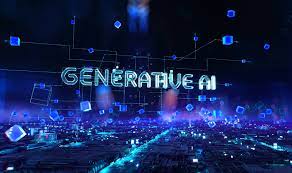
By Manu Saigal
The function of Artificial Intelligence (AI) is spreading beyond conventional bounds in today’s quickly changing technology world, having a significant impact on many different industries. IT recruiting is one such industry going through a paradigm shift, where AI is not only improving efficiency, but also playing a crucial role in decreasing bias and increasing diversity.
Recruitment efficiency has always been important, and AI is a game-changer in this area. The hiring process is substantially enhanced by the ability to handle massive amounts of data, analyze candidate profiles, and quickly match candidates with job specifications. Due to their increased speed, recruiters can now concentrate on strategic hiring practices like assessing cultural fit. Beyond traditional measures, AI-driven solutions excel at finding people with the potential for success. AI can identify people who would have gone unnoticed by looking at historical performance data, educational backgrounds, and skill sets. This provides opportunities for people who have taken non-traditional career paths and fosters a diversified pool of talent to succeed in the IT sector.
The use of AI in IT recruitment, however, is not without its difficulties. It’s critical to strike the correct balance between automation and human involvement. While AI streamlines procedures, human judgment is still necessary to comprehend subtleties that computers could overlook. The way we locate, assess, and onboard talent is being redefined by the role of AI in IT recruitment. It enables recruiters to concentrate on the key elements while ensuring impartiality and objectivity.
Here are some examples of how AI is being applied to IT hiring:
Resume Screening: AI swiftly analyzes resumes, automating initial screening to save recruiters’ time.
Candidate Sourcing: AI searches vast candidate databases based on criteria like skills, experience, and location.
Chatbots/Virtual Assistants: They schedule interviews, answer FAQs, and offer a seamless candidate experience.
Skills Assessment: AI evaluates technical skills through coding challenges, facilitating rapid candidate selection.
Predictive Analytics: AI uses historical data to predict IT role success, aiding informed hiring decisions.
Video Interviews: AI analyzes responses, tone, and facial expressions to assess soft skills and cultural fit.
Diversity & Inclusion: AI anonymizes resumes, removes gender bias, and ensures diverse candidate pools.
Onboarding Assistance: AI aids new hires with training materials and inquiries after hiring.
Continuous Learning: AI recommends training based on career goals and skills.
Enhanced Candidate Experience: AI personalizes communication and keeps candidates updated.
However, while implementing AI in IT recruitment has several benefits, there are a few repercussions to consider, including bias, as AI algorithms may pick up on previous data’s biases, requiring efforts to lessen bias and promote fairness in the hiring process. Additionally, the candidate data collection and processing must adhere to data privacy laws like the GDPR, making data security a top priority for businesses. Moreover, in the pursuit of increased productivity through AI, a human touch must always be maintained in the hiring process to guarantee a great candidate experience. To ensure the proper training and maintenance of AI tools, the HR department may need to hire or upskill AI specialists to address skills gaps.

(The author is Ms. Manu Saigal, Director – General Staffing, Adecco India, and the views expressed in this article are her own)






